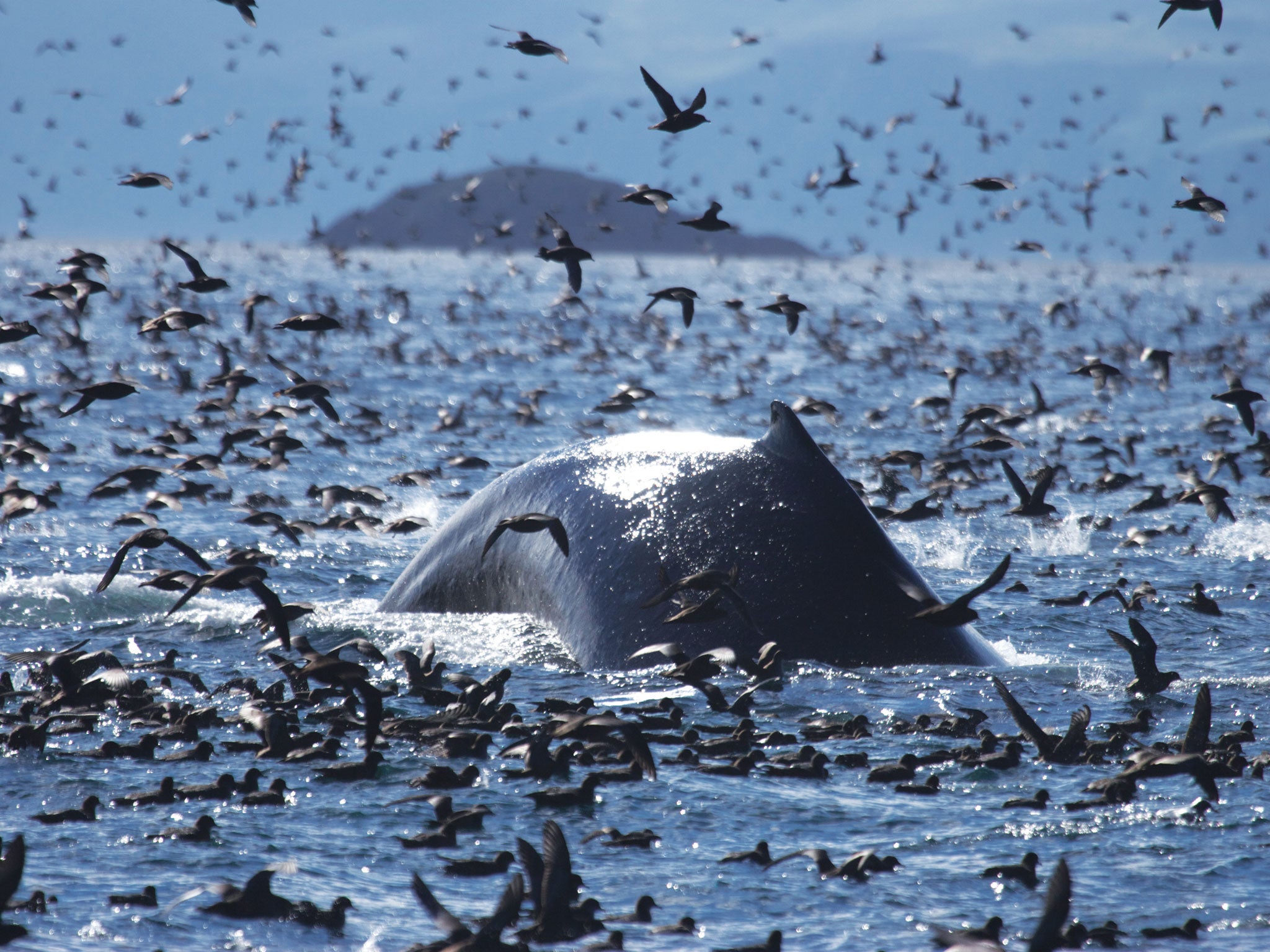The Shark and the Albatross by John Aitchison, book review
Wildlife cameraman John Aitchison brings a fresh insight to the natural world

Your support helps us to tell the story
From reproductive rights to climate change to Big Tech, The Independent is on the ground when the story is developing. Whether it's investigating the financials of Elon Musk's pro-Trump PAC or producing our latest documentary, 'The A Word', which shines a light on the American women fighting for reproductive rights, we know how important it is to parse out the facts from the messaging.
At such a critical moment in US history, we need reporters on the ground. Your donation allows us to keep sending journalists to speak to both sides of the story.
The Independent is trusted by Americans across the entire political spectrum. And unlike many other quality news outlets, we choose not to lock Americans out of our reporting and analysis with paywalls. We believe quality journalism should be available to everyone, paid for by those who can afford it.
Your support makes all the difference.For the past 20 years cameraman John Aitchison has brought home footage of wildlife captured in some the most inaccessible locations on earth, from Dream Island in the Antarctic to Svalbard, 700km north of the Norwegian mainland. While this book is in many ways a love song to the places he has spent time in and the animals he has observed, it also touches on the contradictions implicit in his trade. The "nature" we consume through our screens is brought to us by a range of sophisticated technologies that vary in size from ships and helicopters to super-slow motion cameras designed to record the passage of artillery shells.
Just as no living thing is immune to the impact of human activity, few, it would seem, are allowed to exist beyond the range of our curiosity. Like human celebrities, the more exotic and photogenic they are the more likely it is they'll be papped.
The first thing a wildlife cameraman needs, it seems, is endless patience: the ability to endure sub-zero temperatures, pre-dawn starts, days on end in cramped hides, months away from home and family. The next, and most important, is the ability to "look properly". That Aitchison has this in spades is immediately obvious from the descriptive punch of his prose.
Long hours seeing the world through a telephoto lens give his narrative a heightened, almost hallucinatory sharpness: the fur of a swimming polar bear swirls "like cream in black coffee" as the surface of the sea crackles, freezing around it into crystals "as elaborate as ferns or ostrich plumes". Filming a passing peregrine from the roof of a skyscraper in Manhattan he notices the skin around the bird's beak and eyes "is the same bright yellow as the taxis in the streets... He hardly glances at the city's people and its cars far below, as if they were sea creatures on the bottom of the ocean".
Long hours seeing the world through a lens give his narrative a heightened sharpness
This is nature writing for a technological age, rich with zoom-enabled insights, the gleaming beads of water on the feathers of a migratory bird in the middle of a vast lake as close at hand as the ground beneath our feet.
Sometimes the contradictions get too much. Jostling for position with amateur photographers in an Indian reserve, Aitchison feels "the need to turn the camera round to record what this tigress sees: the ranks of jeeps three deep and six or seven wide, the 50 people watching her through fifty unblinking lenses, the blaze of flashguns reflected in her wide eyes… It's not that sort of film I say to myself half-heartedly. I'm here to film glossy shots of her natural behaviour." But what is natural behaviour? Wherever he turns Aitchison finds the fortunes of wildlife bound up with human activity, from the wolves reintroduced to Yellowstone Park that can be legally shot as soon as they cross its invisible borders, to the increasingly grouchy polar bears tracked, darted, weighed and measured in our efforts to understand global warming.
He's aware of the carbon footprint his work engenders and hopes his films do more good than harm, moving people to "choose to be on nature's side". In the end he simply loves his craft, and his enthusiasm sings off the page. Having captured a difficult underwater shot of emperor penguins in the Antarctic with some tricky new kit he confesses that "on that thin ice, half a world away from home, I have seldom been so happy".
Publisher, £17.99. Order at the discounted price of £14.99 inc. p&p from the Independent Bookshop
Join our commenting forum
Join thought-provoking conversations, follow other Independent readers and see their replies
Comments